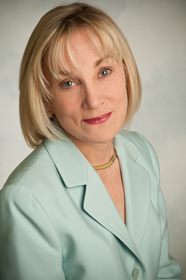-- Don't think retirement: think reinvention. Make your senior years a
time when you will work by choice, rather than work by necessity. Consider
putting the skills and interests you have developed to productive use in
new part-time or full-time endeavors.
-- Health care inflation is one of the biggest threats to the financial
security of retirees, do what you can to keep your costs in check. We all
know what that means: healthy eating, exercise, and regular, preventative
care. Staying productive has also been show to improve both the mental and
physical health of senior citizens.
-- Reexamine your priorities and be creative with trade-offs. Less house
could mean more travel or medical coverage. Consider this: managing your
spending is as important as managing your income. Every dollar you don't
spend is worth as much as $1.40 in pretax income.
-- Get involved with your community. Learn about the resources and
activities for seniors offered where you live. Better still, help to
create and build these resources.
As the Consumer Advocate for CFP Board, I urge you to redefine and reinvent
your life in retirement. Think of it as a new beginning rather than the
end of your working life. It is never too early, nor too late, to plan for
the last, important decades of our lives. There are more than 60,0000
CFP® professionals who can help you build new income, investing, and
spending strategies for surviving and thriving in your retirement. Go to
www.cfp.net and learn how a CFP® professional can help you.
To view the new financial realities series, please visit
http://www.cfp.net/learn/advocate.asp
Eleanor on Twitter: http://twitter.com/EleanorBlayney
Eleanor on FiLife: http://www.filife.com/user/eleanorblayney
Eleanor on LifeTuner: http://www.lifetuner.org/users/eleanorblayney
About CFP Board:
The mission of Certified Financial Planner Board of Standards, Inc. is to
benefit the public by granting the CFP® certification and upholding it as
the recognized standard of excellence for personal financial planning. The
Board of Directors, in furthering CFP Board's mission, acts on behalf of
the public, CFP® certificants and other stakeholders. CFP Board owns the
certification marks CFP®, CERTIFIED FINANCIAL PLANNER™ and federally
registered CFP (with flame design) in the U.S., which it awards to
individuals who successfully complete CFP Board's initial and ongoing
certification requirements. CFP Board currently authorizes more than 60,000
individuals to use these marks in the United States. For more about CFP
Board, visit www.CFP.net.
Contact Information: CONTACT: Stacy Dimakakos Grayling P: 646-284-9417 E: stacy.dimakakos@us.grayling.com
